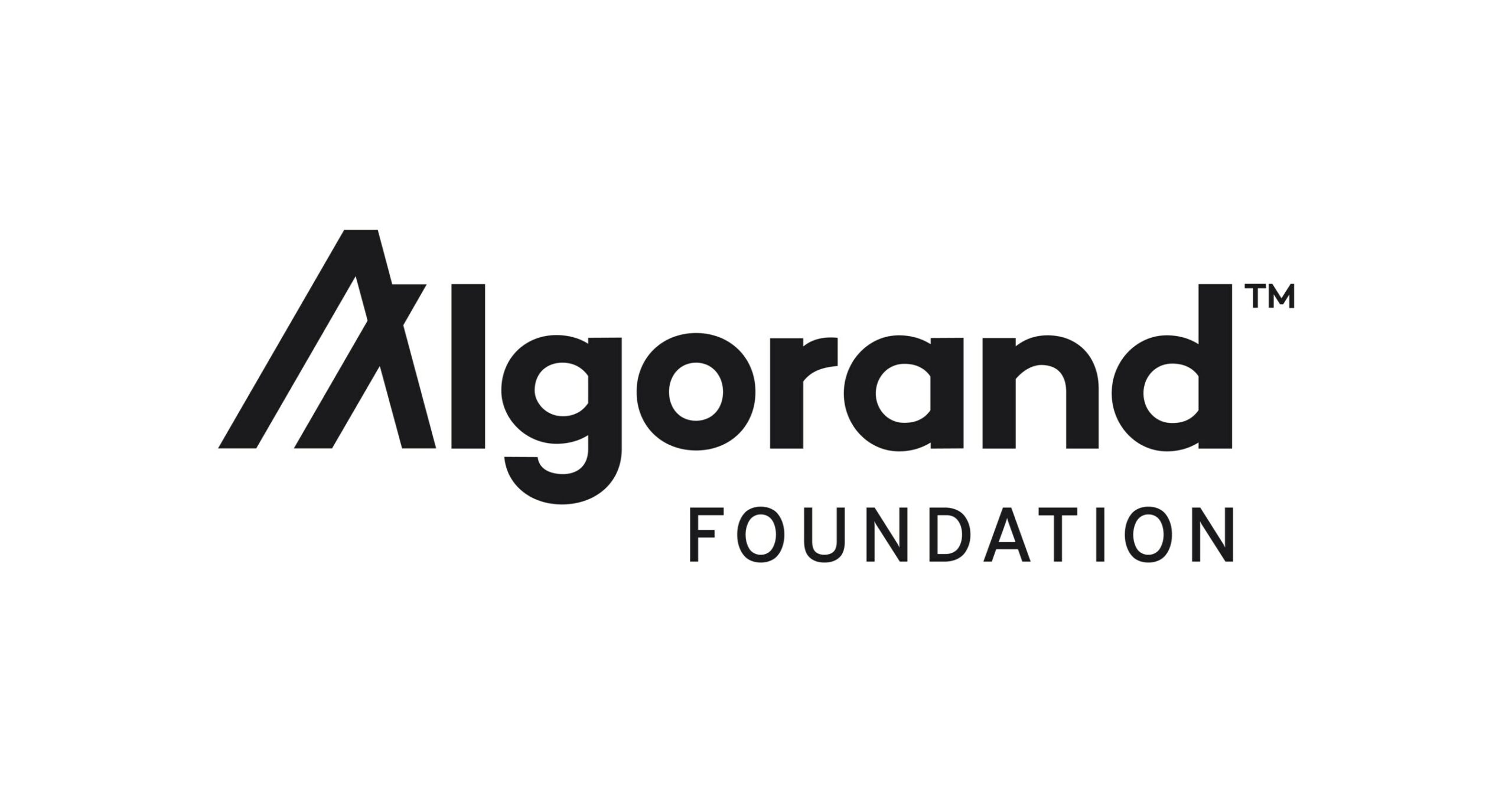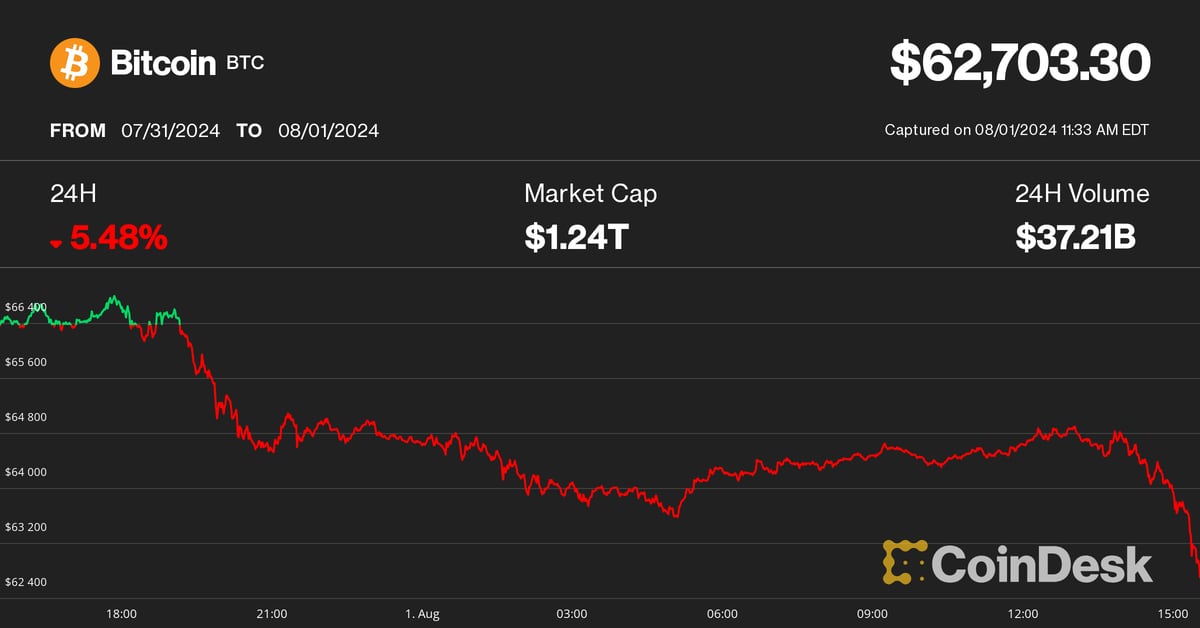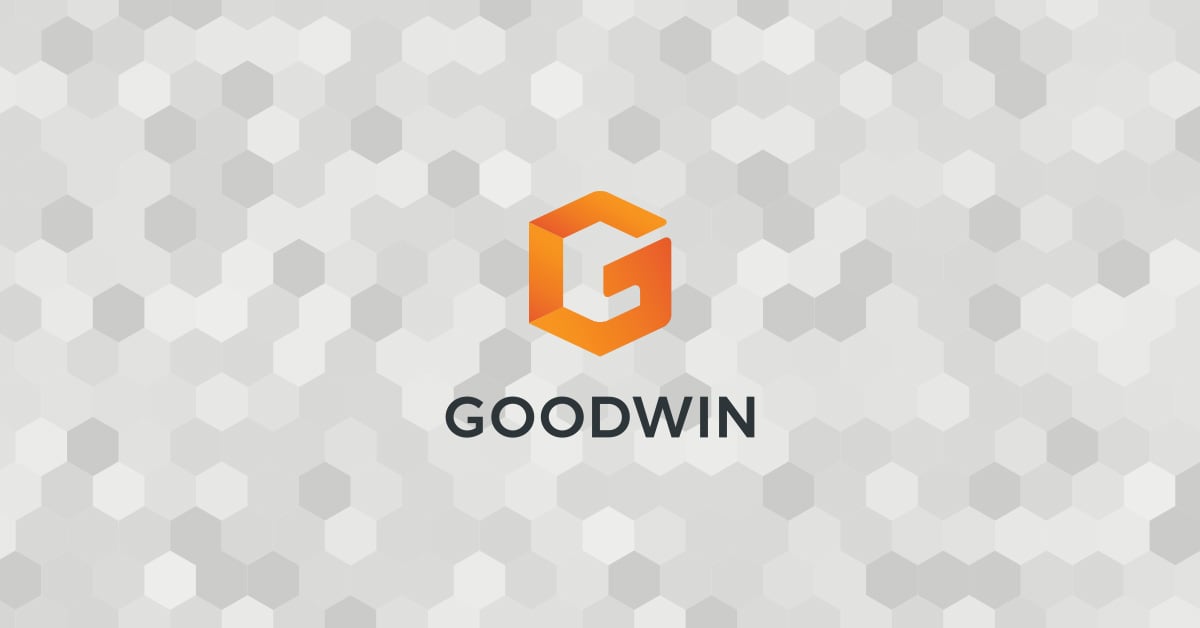Blockchain
Global fintechs and web3 giants team up to scale up blockchain-based cash assistance for humanitarian crises

Humanitarian Council members include the Algorand Foundation, Circle, Worldpay, Mercy Corps Ventures, HesabPay, the United Nations Development Program and others
BARCELONA, Spain, June 26, 2024 /PRNewswire/ — Today, in a move led by Algorand Foundation, a coalition of fintech, web3 and humanitarian organizations announced the formation of a council that seeks to increase access to blockchain-based cash assistance during humanitarian crises. The goal of the council, among other activities, is to advise UN agencies and NGOs on the use of blockchain technology for aid payments and to develop a roadmap for successful piloting of cash programs based on blockchain in areas in difficulty.
Over the past decade, the United Nations and NGOs have started to offer more cash assistance (versus in-kind or service-based assistance). According to CALP networka leader in cash and voucher humanitarian assistance, this form of assistance now comprises 21% of all international humanitarian aid, reaching $10 billion in 2022, and this percentage could potentially be much higher (source). Humanitarian organizations are working to provide this kind of aid as quickly and cost-effectively as possible, while dealing with increasingly complex financial regulations. That said, the projects under the purview of this council will explore the potential benefits and opportunities of blockchain-based payment solutions in addressing these particular constraints.
The purpose of using blockchain is first and foremost to compensate for the lack of financial and technological infrastructure in humanitarian locations such as Afghanistan and others. In these regions, the application of blockchain technology could bring greater efficiency and ease in the provision of cash aid, making an even larger scale response possible.
Increasing cash aid also requires transparency. Cash aid programs must be traceable and verifiable without violating the rights of beneficiaries. Using blockchain, organizations can keep an immutable, immutable record of how money was distributed, without revealing how it is used by the recipient. This model protects the privacy of those in crisis while maintaining the tracking and verification that aid programs, donors and governments need.
Powered by Algorand, global payments app HesabPay is already demonstrating the effectiveness of merging blockchain and aid delivery. It facilitates the world’s largest humanitarian project ever run on a public blockchain, bringing support to more than 14,000 families in Afghanistan in partnership with the United Nations World Food Program (WFP) and supported by the WFP Innovation Accelerator.
Bernhard Kowatsch, head of WFP’s Innovation Accelerator, added: “HesabPay’s success in Afghanistan highlights the significant impact and scalability of this technology. We are eager to scale these innovations globally to revolutionize aid distribution.”
“Cash-based direct humanitarian assistance has grown rapidly and is the future due to the extraordinary benefits cash provides to beneficiaries. To be effective, humanitarian payments must meet several requirements: immediate settlement, easily scaled to thousands if not million beneficiaries and transparent and traceable,” said Matt Keller, director of impact at the Algorand Foundation. “Blockchain meets all these requirements and is one of the reasons we invested in HesabPay, which delivers humanitarian aid payments to Afghanistan without sacrificing time or liability.”
“At Circle Impact, our mission from 2021 is to empower underserved communities and reach people who have traditionally been excluded from financial systems. We are excited to be part of the Humanitarian Council, where we can cultivate a new generation of financial inclusion aimed at enhancing humanitarian aid and disaster relief,” said Mercina Tillemann-Perez, vice president of Circle Impact.
“Launching 16 crypto pilots in over 10 countries over the past 4 years, Mercy Corps Ventures has been actively implementing first-of-its-kind real-world use cases in the humanitarian and development context leveraging blockchain technology. We are now building a Humanitarian Venture Lab with a series of humanitarian pilots, use cases and insights that show where the challenges the Algorand Foundation is facing are unfolding – and being solved – in real time,” said Sandra Uwantege Hart, head of the Humanitarian Venture Lab at Mercy Corps Ventures.
“Humanitarian crises require faster, more transparent aid solutions. Blockchain technology has the potential to revolutionize aid distribution through unprecedented traceability. If this initiative can match the speed and efficiency of the more than 40 billion transactions that Worldpay processes every year, there is an opportunity to provide life-saving support to millions of people facing humanitarian crises, ensuring that funds reach those in need without delay,” said Ahmed Zifzaf, head of crypto/web3 partnerships for Worldpay.
“At UNDP we are exploring with Algorand how digital payments can bring transparency by making payments with greater speed and trust to support life in countries without a strong banking ecosystem. Particular attention is paid to supporting the work of civil society organisations, such as through our Tadamon network of 4,000 civil society organizations,” said Robert Pasicko, Innovation Team Leader at UNDP.
Currently serving board members include:
- Sandra Uwantege Hart, Head of Humanitarian Venture Lab at Mercy Corps Ventures
- Mercina Tillemann Perez, Vice President, Circle Impact at Circle
- Paula Gil Baizan, PoliSync Center for International Political Engagement
- Ahmed Zifzaf, Head of Crypto/Web3 Partnerships at Worldpay
- Hasan Fallaha, Livelihoods and Economic Recovery program analyst at UNDP Syria
- Ali Theyab Al-Zuhairi, Economic Reform Project Coordinator (FFER-FED) at UNDP Country Office in Iraq
- Robert Pasicko, Innovation Team Leader, United Nations Development Program (UNDP)
- Henri de Jong, Director of Business Development at Quantoz
- Rory Crew, Technical Consultant on Data and Digitization at CALP Network
- Nigel Pont, senior consultant at HesabPay
- Suzana Moreno, Head of Strategy and Project Portfolio for Blockchain Technology at WFP Innovation Accelerator
- Kelly Stablein, independent humanitarian consultant
About the Algorand Foundation
Algorand’s mission is to power a world where information is intact and innovative ideas can grow. The Algorand Foundation supports the rapidly growing Algorand ecosystem by providing a world-class development environment, supporting key infrastructure and defining technical standards, offering comprehensive support to builders and entrepreneurs, and providing the infrastructure for decentralized governance.
Founded by Turing Award-winning cryptographer Silvio Micali in 2019, Algorand has grown into a vibrant ecosystem of developers, entrepreneurs, and corporate partners who benefit from institutional-grade certainty and resilience, while features like low fees, instant finality, and a minimal of carbon emissions The footprint also appeals to the protocol’s millions of retail users. Builders of all types can use common programming languages like Python to develop advanced apps and protocols that solve important problems on a global scale: instant payments in war zones and disasters, self-sovereign identity for the disenfranchised, chain tracing supply for global trade, permissionless protocols addressing financial inclusion, and the creation of entirely new markets through tokenization, to name a few. To learn more and begin your Algorand journey, visit foundation.algorand.
About Circle
Circle is a global financial technology company that enables businesses of all sizes to harness the power of digital currencies and public blockchains for payments, commerce and financial applications around the world. Circle is the issuer of USDC and EURC: highly liquid, interoperable and reliable monetary protocols on the Internet. Circle’s open, programmable platform and APIs enable organizations to easily manage their business at Internet scale, whether making international payments, building globally accessible Web3 apps, or managing their internal treasury. Find out more about Italian: https://circle.com.
About HesabPay
HesabPay is a global payments app at the forefront of global financial inclusion, targeting the 2 billion unbanked individuals around the world. With exponential growth, HesabPay now boasts over half a million users, facilitating $35 million in monthly peer-to-peer (P2P) transfers. The platform serves 250,000 families in managing bill payments and supports over two dozen donors in distributing humanitarian cash assistance. HesabPay’s impact is evident in its expansive reach and the vital financial lifeline it provides. Discover the full range of HesabPay services on hesab.com.
About Mercy Corps Ventures
Mercy Corps Ventures invests in and catalyzes venture-led solutions to increase the resilience of underserved individuals and communities. Founded in 2015 as the impact investing arm of global development agency Mercy Corps, we have supported 50 early-stage ventures to scale and raise more than $465 million in follow-on capital. 44% of our portfolio has at least one female co-founder and is focused on climate adaptation and resilience-building solutions in adaptive agriculture and food systems, inclusive fintech and climate-smart technologies, so that those living in Frontier markets can weather disruptions and plan for the future. Through capital and support, pioneering new approaches, action-oriented insights and rigorously managing impact, we catalyze the ecosystem towards smarter, more impactful investments. Find out more about www.mercycorpsventures.vc.
About Worldpay
Worldpay is a leading payment technology and solutions company with unique capabilities to power omni-commerce around the world. Our processing solutions enable businesses of all sizes to accept, make and manage payments in person and online from anywhere in the world. Every year we process over 40 billion transactions across 146 countries and 135 currencies. We help our customers become more efficient, safer and more successful.
SOURCE Algorand Foundation
Blockchain
Bitcoin (BTC) Price Crashes as Donald Trump’s Win Odds Dip

Markets received nominally good news on Thursday morning, with the US ISM manufacturing PMI for July falling much more than economists expected, sending interest rates to multi-month lows across the board. Additionally, initial jobless claims in the US jumped to their highest level in about a year. Taken together, the data adds to the sentiment that the US is on the verge of a cycle of monetary easing by the Federal Reserve, which is typically seen as bullish for risk assets, including bitcoin.
Blockchain
Terra Blockchain Reboots After Reentry Attack Leads to $4M Exploit

Please note that our Privacy Policy, terms of use, cookiesAND do not sell my personal information has been updated.
CoinDesk is a awarded press agency that deals with the cryptocurrency sector. Its journalists respect a rigorous set of editorial policiesIn November 2023, CoinDesk has been acquired from the Bullish group, owner of Bullisha regulated digital asset exchange. Bullish Group is majority owned by Block.one; both companies have interests in a variety of blockchain and digital asset businesses and significant digital asset holdings, including bitcoin. CoinDesk operates as an independent subsidiary with an editorial board to protect journalistic independence. CoinDesk employees, including journalists, are eligible to receive options in the Bullish group as part of their compensation.
Blockchain
$6.8M Stolen, ASTRO Collapses 60%

In the latest news in the blockchain industry, there has been a turn of events that has severely affected Terra and its users and investors, with the company losing $6.8 million. The attack, which exploited a reentry vulnerability in the network’s IBC hooks, raises questions about the security measures of the once celebrated blockchain protocol.
A web3 security company, Cyvers Alerts reported that the exploit occurred on July 31st and caused the company to lose 60 million ASTRO, 3.5 million USDC500,000 USDTand 2. 7 BitcoinThe flaw was discovered in April and allows cybercriminals to make payments non-stop by withdrawing money from the network.
Earth’s response
Subsequently, to the hack employed on the Terra blockchain, its official X platform declared the Suspension network operations for a few hours to apply the emergency measure. Finally in its sendTerra’s official account agreed, sharing that its operations are back online: the core transactions that make up the platform are now possible again.
However, the overall value of the various assets lost in the event was unclear.
Market Impact: ASTRO Crashes!
The hack had an immediate impact on the price of ASTRO, which dropped nearly 60% to $0.0206 following the network shutdown. This sharp decline highlights the vulnerability of token prices to security breaches and the resulting market volatility.
This incident is not the first time Terra has faced serious challenges. Earlier this year, the blockchain encountered significant problems that called into question its long-term viability. These repeated incidents underscore the need for stronger security measures to protect users’ assets and maintain trust in the network.
The recent Terra hack serves as a stark reminder of the ongoing security challenges in the blockchain space. As the platform works to regain stability, the broader crypto community will be watching closely.
Read also: Record Cryptocurrency Theft: Over $1 Billion Stolen in 2024
This is a major setback for Terra. How do you think this will impact the blockchain industry?
Blockchain
Luxembourg proposes updates to blockchain laws | Insights and resources

On July 24, 2024, the Ministry of Finance proposed Blockchain Bill IVwhich will provide greater flexibility and legal certainty for issuers using Distributed Ledger Technology (DLT). The bill will update three of Luxembourg’s financial laws, the Law of 6 April 2013 on dematerialised securitiesTHE Law of 5 April 1993 on the financial sector and the Law of 23 December 1998 establishing a financial sector supervisory commissionThis bill includes the additional option of a supervisory agent role and the inclusion of equity securities in dematerialized form.
DLT and Luxembourg
DLT is increasingly used in the financial and fund management sector in Luxembourg, offering numerous benefits and transforming various aspects of the industry.
Here are some examples:
- Digital Bonds: Luxembourg has seen multiple digital bond issuances via DLT. For example, the European Investment Bank has issued bonds that are registered, transferred and stored via DLT processes. These bonds are governed by Luxembourg law and registered on proprietary DLT platforms.
- Fund Administration: DLT can streamline fund administration processes, offering new opportunities and efficiencies for intermediaries, and can do the following:
- Automate capital calls and distributions using smart contracts,
- Simplify audits and ensure reporting accuracy through transparent and immutable transaction records.
- Warranty Management: Luxembourg-based DLT platforms allow clients to swap ownership of baskets of securities between different collateral pools at precise times.
- Tokenization: DLT is used to tokenize various assets, including real estate and luxury goods, by representing them in a tokenized and fractionalized format on the blockchain. This process can improve the liquidity and accessibility of traditionally illiquid assets.
- Tokenization of investment funds: DLT is being explored for the tokenization of investment funds, which can streamline the supply chain, reduce costs, and enable faster transactions. DLT can automate various elements of the supply chain, reducing the need for reconciliations between entities such as custodians, administrators, and investment managers.
- Issuance, settlement and payment platforms:Market participants are developing trusted networks using DLT technology to serve as a single source of shared truth among participants in financial instrument investment ecosystems.
- Legal framework: Luxembourg has adapted its legal framework to accommodate DLT, recognising the validity and enforceability of DLT-based financial instruments. This includes the following:
- Allow the use of DLT for the issuance of dematerialized securities,
- Recognize DLT for the circulation of securities,
- Enabling financial collateral arrangements on DLT financial instruments.
- Regulatory compliance: DLT can improve transparency in fund share ownership and regulatory compliance, providing fund managers with new opportunities for liquidity management and operational efficiency.
- Financial inclusion: By leveraging DLT, Luxembourg aims to promote greater financial inclusion and participation, potentially creating a more diverse and resilient financial system.
- Governance and ethics:The implementation of DLT can promote higher standards of governance and ethics, contributing to a more sustainable and responsible financial sector.
Luxembourg’s approach to DLT in finance and fund management is characterised by a principle of technology neutrality, recognising that innovative processes and technologies can contribute to improving financial services. This is exemplified by its commitment to creating a compatible legal and regulatory framework.
Short story
Luxembourg has already enacted three major blockchain-related laws, often referred to as Blockchain I, II and III.
Blockchain Law I (2019): This law, passed on March 1, 2019, was one of the first in the EU to recognize blockchain as equivalent to traditional transactions. It allowed the use of DLT for account registration, transfer, and materialization of securities.
Blockchain Law II (2021): Enacted on 22 January 2021, this law strengthened the Luxembourg legal framework on dematerialised securities. It recognised the possibility of using secure electronic registration mechanisms to issue such securities and expanded access for all credit institutions and investment firms.
Blockchain Act III (2023): Also known as Bill 8055, this is the most recent law in the blockchain field and was passed on March 14, 2023. This law has integrated the Luxembourg DLT framework in the following way:
- Update of the Act of 5 August 2005 on provisions relating to financial collateral to enable the use of electronic DLT as collateral on financial instruments registered in securities accounts,
- Implementation of EU Regulation 2022/858 on a pilot scheme for DLT-based market infrastructures (DLT Pilot Regulation),
- Redefining the notion of financial instruments in Law of 5 April 1993 on the financial sector and the Law of 30 May 2018 on financial instruments markets to align with the corresponding European regulations, including MiFID.
The Blockchain III Act strengthened the collateral rules for digital assets and aimed to increase legal certainty by allowing securities accounts on DLT to be pledged, while maintaining the efficient system of the 2005 Act on Financial Collateral Arrangements.
With the Blockchain IV bill, Luxembourg will build on the foundations laid by previous Blockchain laws and aims to consolidate Luxembourg’s position as a leading hub for financial innovation in Europe.
Blockchain Bill IV
The key provisions of the Blockchain IV bill include the following:
- Expanded scope: The bill expands the Luxembourg DLT legal framework to include equity securities in addition to debt securities. This expansion will allow the fund industry and transfer agents to use DLT to manage registers of shares and units, as well as to process fund shares.
- New role of the control agent: The bill introduces the role of a control agent as an alternative to the central account custodian for the issuance of dematerialised securities via DLT. This control agent can be an EU investment firm or a credit institution chosen by the issuer. This new role does not replace the current central account custodian, but, like all other roles, it must be notified to the Commission de Surveillance du Secteur Financier (CSSF), which is designated as the competent supervisory authority. The notification must be submitted two months after the control agent starts its activities.
- Responsibilities of the control agent: The control agent will manage the securities issuance account, verify the consistency between the securities issued and those registered on the DLT network, and supervise the chain of custody of the securities at the account holder and investor level.
- Simplified payment processesThe bill allows issuers to meet payment obligations under securities (such as interest, dividends or repayments) as soon as they have paid the relevant amounts to the paying agent, settlement agent or central account custodian.
- Simplified issuance and reconciliationThe bill simplifies the process of issuing, holding and reconciling dematerialized securities through DLT, eliminating the need for a central custodian to have a second level of custody and allowing securities to be credited directly to the accounts of investors or their delegates.
- Smart Contract Integration:The new processes can be executed using smart contracts with the assistance of the control agent, potentially increasing efficiency and reducing intermediation.
These changes are expected to bring several benefits to the Luxembourg financial sector, including:
- Fund Operations: Greater efficiency and reduced costs by leveraging DLT for the issuance and transfer of fund shares.
- Financial transactions: Greater transparency and security.
- Transparency of the regulatory environment: Increased attractiveness and competitiveness of the Luxembourg financial centre through greater legal clarity and flexibility for issuers and investors using DLT.
- Smart Contracts: Potential for automation of contractual terms, reduction of intermediaries and improvement of transaction traceability through smart contracts.
Blockchain Bill IV is part of Luxembourg’s ongoing strategy to develop a strong digital ecosystem as part of its economy and maintain its status as a leading hub for financial innovation. Luxembourg is positioning itself at the forefront of Europe’s growing digital financial landscape by constantly updating its regulatory framework.
Local regulations, such as Luxembourg law, complement European regulations by providing a more specific legal framework, adapted to local specificities. These local laws, together with European initiatives, aim to improve both the use and the security of projects involving new technologies. They help establish clear standards and promote consumer trust, while promoting innovation and ensuring better protection against potential risks associated with these emerging technologies. Check out our latest posts on these topics and, for more information on this law, blockchain technology and the tokenization mechanism, do not hesitate to contact us.
We are available to discuss any project related to digital finance, cryptocurrencies and disruptive technologies.
This informational piece, which may be considered advertising under the ethics rules of some jurisdictions, is provided with the understanding that it does not constitute the rendering of legal or other professional advice by Goodwin or its attorneys. Past results do not guarantee a similar outcome.
-

 Regulation11 months ago
Regulation11 months agoRipple CTO and Cardano founder clash over XRP’s regulatory challenges ⋆ ZyCrypto
-

 Regulation10 months ago
Regulation10 months agoNancy Pelosi Considers Supporting Republican Crypto Bill FIT21 – London Business News
-

 Videos11 months ago
Videos11 months agoCryptocurrency News: Bitcoin, ETH ETF, AI Crypto Rally, AKT, TON & MORE!!
-

 Regulation11 months ago
Regulation11 months agoBitcoin’s future is ‘bleak’ and ripe for regulation, says lead developer
-

 News8 months ago
News8 months agoAave Price Increases Following Whales Accumulation and V3.1 Launch
-

 Regulation8 months ago
Regulation8 months agoSouth Korea Imposes New ‘Monitoring’ Fees on Cryptocurrency Exchanges
-

 Regulation8 months ago
Regulation8 months agoCryptocurrency Regulations in Slovenia 2024
-

 Regulation8 months ago
Regulation8 months agoA Blank Sheet for Cryptocurrencies: Kamala Harris’ Regulatory Opportunity
-

 News11 months ago
News11 months agoThe trader earned $46 million with PEPE after reaching a new ATH
-

 Regulation10 months ago
Regulation10 months agoCrypto needs regulation to thrive: Tyler Cowen
-

 Blockchain11 months ago
Blockchain11 months agoSolana ranks the fastest blockchain in the world, surpassing Ethereum, Polygon ⋆ ZyCrypto
-

 Blockchain11 months ago
Blockchain11 months agoSolana Surpasses Ethereum and Polygon as the Fastest Blockchain ⋆ ZyCrypto

















